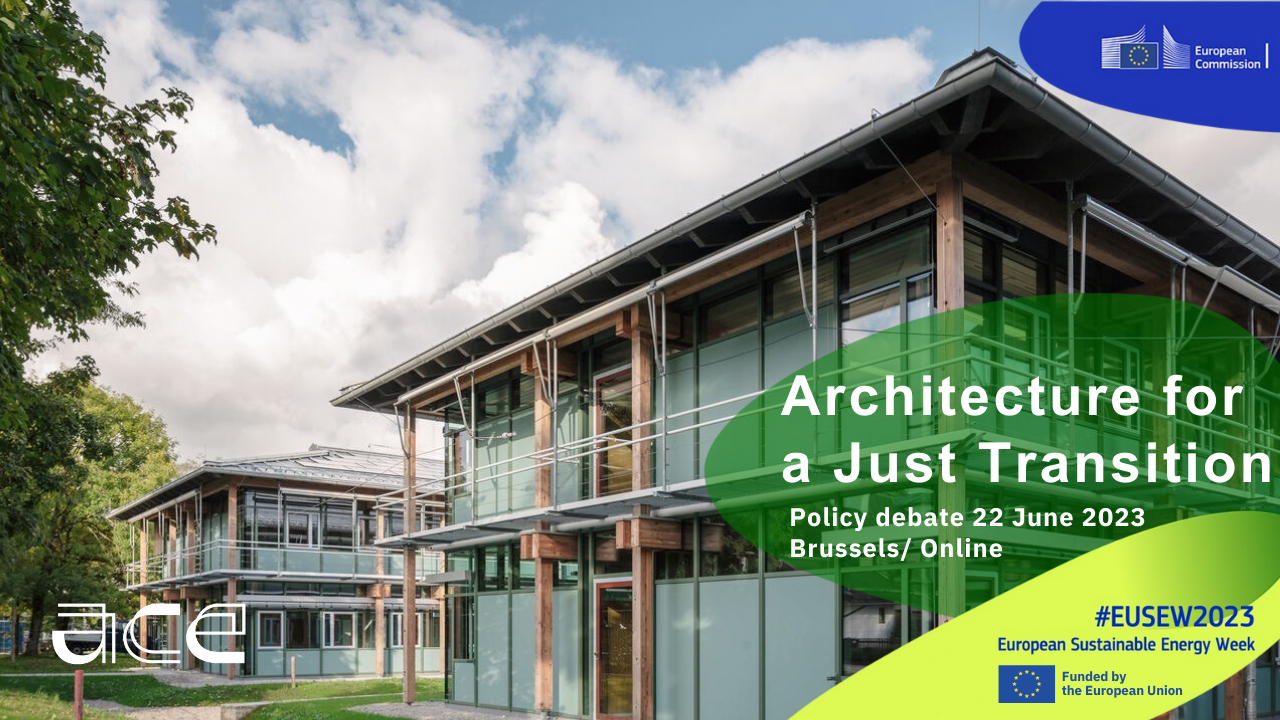
- News
- Publications
- Press releases
- Links
- Contact
- Members area

The Climate Emergency has accelerated the development of EU policy measures aiming to decarbonise energy sources, reduce energy use in buildings, and achieve circularity in the production and use of materials in construction. The EU Parliament recently voted for a progressive revision of the Energy Performance of Buildings Directive (EPBD), the last missing piece of the “Fit For 55” package, to tackle these priorities head-on. As the draft legislation enters the Trilogue negotiations, much is at stake for the built environment, its users, and creators.
With the New European Bauhaus (NEB) initiative, the EU Commission is already promoting the recognition of the social, economic and cultural dimensions of this transformation, making the Renovation Wave a cultural project. Will this once in a lifetime investment in the environmental performance of buildings deliver its ambition, and how can architectural design ensure that it does, with social justice at its heart?
As part of the 2023 EU Sustainable Energy Week (EUSEW), the ACE has organised a Policy Debate on 22 June in Brussels at the Maison des Associations Internationales.
The event brought together architects and other stakeholders of the construction and buildings sector to demonstrate how the Parliament’s ambition for this Directive can be delivered, what this transition can look and feel like in our daily lives, in our buildings, neighbourhoods and cities.
Download the agenda of the policy debate here.
Download the presentations below:
Presentation by Scott MCAULAY, Coordinator of the Anthropocene Architecture School
Keynote presentation by Greta TRESSERRA, Higher Council of the Orders of Architects of Spain (CSCAE)
Case studies – Pecha-Kucha presentations by:
- Kathy MADDEN, Climate Adviser at the Royal Institute of the Architects of Ireland (RIAI)
- Carl BÄCKSTRAND, Member of the ACE Executive Board
- Felicia RIESS, Chamber of Architects of Lower Saxony
- Helena O'ROURKE-POTOCKI Circular Economy & Procurement Officer, ICLEI